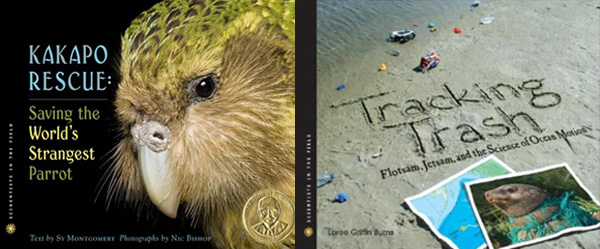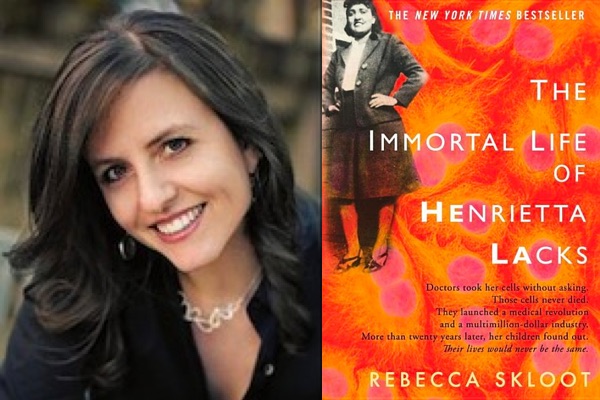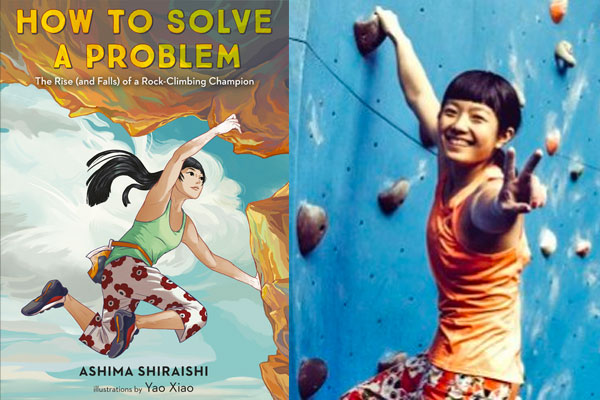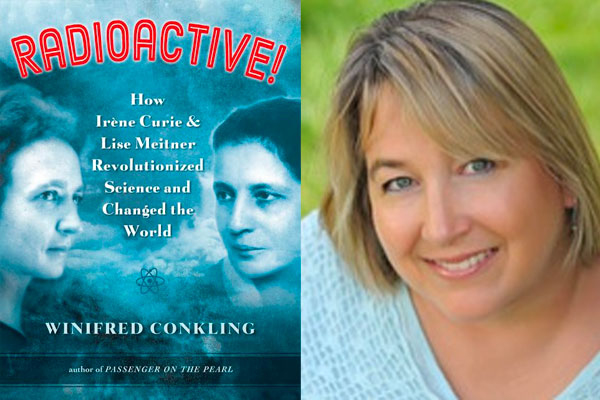Science Standards Support
Inspired by the Next Generation Science Standards1, the reference points that are bolded below can enhance your science instruction.
Obtain, evaluate, and communicate scientific information.
Search the Science Collection and filter to identify recent award-winning titles. Use Graphic Organizers to record observations while reading.
Go back in time to hear how Dr. Anthony Fauci’s childhood experiences impacted his research methods in this Meet-the-Author Recording for Dr. Fauci by Kate Messner.
Discuss research techniques after listening to Melissa Stewart’s Meet-the-Author Recording for Fourteen Monkeys.
Explore the Scientists in the Field Series to discover how scientists observe and learn more about the natural world around them.


Engage learners with resources that connect concepts to real life situations.
Listen to a variety of Patricia Newman’s original resources for ideas to spark discussion about our connection with the world.
Invite both scientific and ethical dialogue using this written interview with author Rebecca Skloot.
Build background knowledge by performing the reader’s theater script for The Boo-Boos That Changed the World by Barry Wittenstein and Chris Hsu.
Extend curiosity just like Ada Twist while conducting physics experiments with this playground science activity.
Provide authentic exploration and problem-solving opportunities.
Discover 8 ways to connect snowflakes and language arts using this guide filled with cross-curricular teaching ideas.
Learn how Elizebeth Friedman’s interest in codes altered the course of two world wars in this Meet-the-Author Recording by Laurie Wallmark for Code Breaker, Spy Hunter.
Hear how Flint, Michigan residents came together to solve their water crisis with this Meet-the-Author Recording by Candy J. Cooper for Poisoned Water.
Prompt discussion about problem solving using the audiobook excerpt and activity guide for How to Solve a Problem by Ashima Shiraishi.


Explore the lives, struggles, and successes of scientists.
Dig into the lives of those who experienced scientific bias by searching the Science Collection and filtering by biography and any cultural experience.
Support and assess comprehension of nonfiction text with Nonfiction Read and Respond Multi-Leveled Lessons.
Consider the challenges of being a scientist in the 1930s after listening to this audiobook excerpt from Radioactive! by author Winifred Conkling.
Empower readers to shatter stereotypes and reach their goals with this Meet-the-Author Recording for Almost Astronauts by Tanya Lee Stone.
1. Referenced from "DCI Arrangements of the NGSS." Next Generation Science Standards, http://www.nextgenscience.org/overview-dci.

